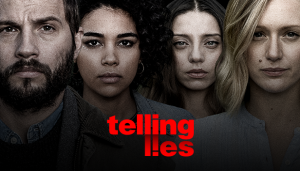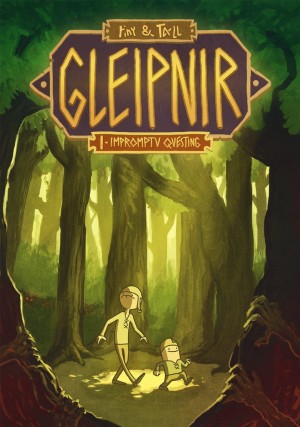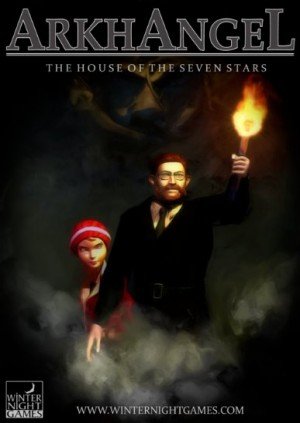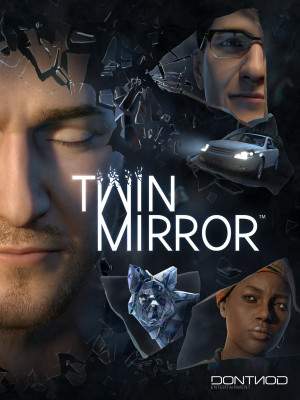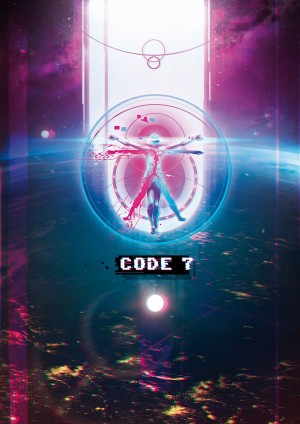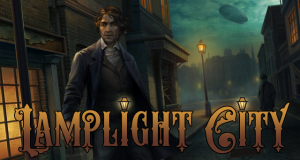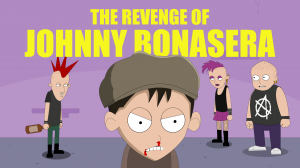Sam Barlow (Her Story, Telling Lies) – Part 2 interview - page 4
Ingmar: Speaking of Netflix, did you have a chance to check out Black Mirror: Bandersnatch? And if you did, how did you feel about it and do you think that interactive content on streaming platforms can become a bigger thing at some point in the future?
Sam: I think it was possibly the right decision for them to have it be somewhat simple so that it would run smoothly on the huge number of devices involved. I was impressed by the fact that they executed it, that they managed to deliver something with high production values that worked, that the audience understood. But it’s always hard for someone that’s been in and around the interactive fiction community for a while and to know the level of evolution and sophistication that has grown within that community. Even something as simple as the choose your own adventure has become a lot more complicated and interesting and nuanced. So it’s frustrating that Bandersnatch was essentially a 1980s choose your own adventure.
Ingmar: Right.
Sam: But lampshading and foregrounding that as the gimmick of the story being built around ‘80s choose your own adventures facilitated that and allowed them to get away with it. So I think the real challenge now is having done Bandersnatch and it being a success, it possibly makes things harder for everybody else now because it feels like they’ve solved some problems but they haven’t necessarily. Because no one else can do that again. You know the next big budget interactive TV drama cannot be about kids in the ‘80s doing choose your own adventures.
Ingmar: And Black Mirror was a great IP to choose because it isn’t an ongoing series. Different characters each time.
Sam: Yeah, and it has a meta quality to it that if Black Mirror makes an episode about choose your own adventure games, then it’s a choose your own adventure game. So I think it’s going to be interesting. It’s the most successful example of this that anyone has pulled off yet, so it feels like a victory and it feels like a step forward. But it’s hard to see exactly what follows it. If a competitor is now looking to put out something that goes beyond Bandersnatch, there’s a lot of challenges that they have to overcome. But it’s inevitable that all these platforms have to solve this problem. The meetings I’ve had with various people in Hollywood, they all know that they’re losing mindshare to video games. They know that they have an audience that has a hundred and one more distractions than watching television. In the ‘60s, sitting down and watching television is what everybody did. And it was a very strong business model. And it was that way up until very recently. Now even the Netflixes know that they’re competing with Fortnite (laughs).
Ingmar: Exactly.
Sam: So they’re all obsessively trying to figure out “how do we respect the fact that these people have expectations around immersion and interactivity and personalisation and what does that look like when applied to a TV show?” In some ways I think Her Story and Telling Lies is one answer to that question. It’s to completely take the muscle memory we have from actually interacting with the digital world and take the way we actually consume content and have that be the structure of the experience. But it’s also a battle to take that conventional TV show and try to inject this more direct interactivity into it. There’s lots of challenges. So, it’s interesting times. Everyone is having a go at it in different ways and at some point you’ve gotta imagine there will be the thing that lands in a way that satisfies.
 |
Telltale's The Walking Dead was a hugely successful, if ultimately short-lived, step forward in choice-based interactive storytelling |
To some extent in games, maybe The Walking Dead was a little bit like Bandersnatch. It was the perfect IP for the tech at the time. It was a comic, it was zombies, so there was always this external threat that could move you on and tie the story threads back together and these super-intense life or death decisions. So I think The Walking Dead was the perfect example of that format, and then a lot of people jumped on that format, including Telltale themselves, and attempted to kind of fill that out. But that was definitely one of the better examples of how we can tell a significant character-based story that’s like a traditional TV show and have some interactivity. But there’s a lot more questions and interesting challenges when you throw it into genuine live action – which I think is the opportunity – and Bandersnatch squanders that because technically they are limited to having the thirty seconds lead time, right? You make a choice and you sit and wait. So it happens. And the choices are binary so it never really feels like real person.
I think the nearest I’ve come to experiencing it in a game would be Oxenfree; the fluidity of the choices you make in Oxenfree and none of those are big story branches. It’s all just about what characters are saying to each other, but choose something and it flows into the conversation and you make another choice and it flows and you make another choice. So there’s a density of choice and there’s a speed of reactivity to those choices and it feels magical and fun. I think if you did that in live action… we’re so trained to do invisible editing in live action that when you watch a TV show you are watching something that is assembled from multiple parts and it’s been cobbled together offline in an editing suite, but in my head there is something that is as reactive as Oxenfree that is able to assemble things in real time because we don’t notice cuts when they happen in a conventional television program. That would feel very fluid and magical and possibly the tech isn’t quite there yet; possibly the effort to actually execute on it isn’t there yet.
Ingmar: Now before we come to the end I really want to thank you very much for giving me so much time for this interview.
Sam: Oh, no problem. The whole world is so scary to someone somewhat old like me, and so speaking to a journalist that has a website... I understand that’s how you reach an audience and so I’m very grateful for anyone that’s out there talking about my stuff. ‘Cause I’m not making the kind of thing where I can just send it to the top five streamers (laughs) and have them play it with their audience. It doesn’t really work for me.
Ingmar: Perhaps that’s a good thing. But of course I can’t let you go without asking you about the latest release date estimate when it comes to Telling Lies.
Sam: There isn’t a huge amount to do to finish it, but with this one we are localizing so we’re going to have subtitles in a whole ton of languages, which obviously is more complicated than it would be in a normal game. So that is proceeding but I’m very hopeful that we will have this in people’s hands during the warm weather and the sooner the better. So that’s as much as I will narrow it down. (laughs) But yeah, the end is near. It feels like it’s taken me a while this time. It’s been a few years but it’s just the pace of the world. There’s part of me that’s terrified that when this game comes out the world will have changed so much or some things will happen that it will make this game pointless. So I’m like, please just get it out while we still have a functioning internet and people can download it and the story of the game is somewhat relevant. So that’s my impetus.
Interview transcription provided by Richard Hoover, Joe Keeley and Shuva Raha.




